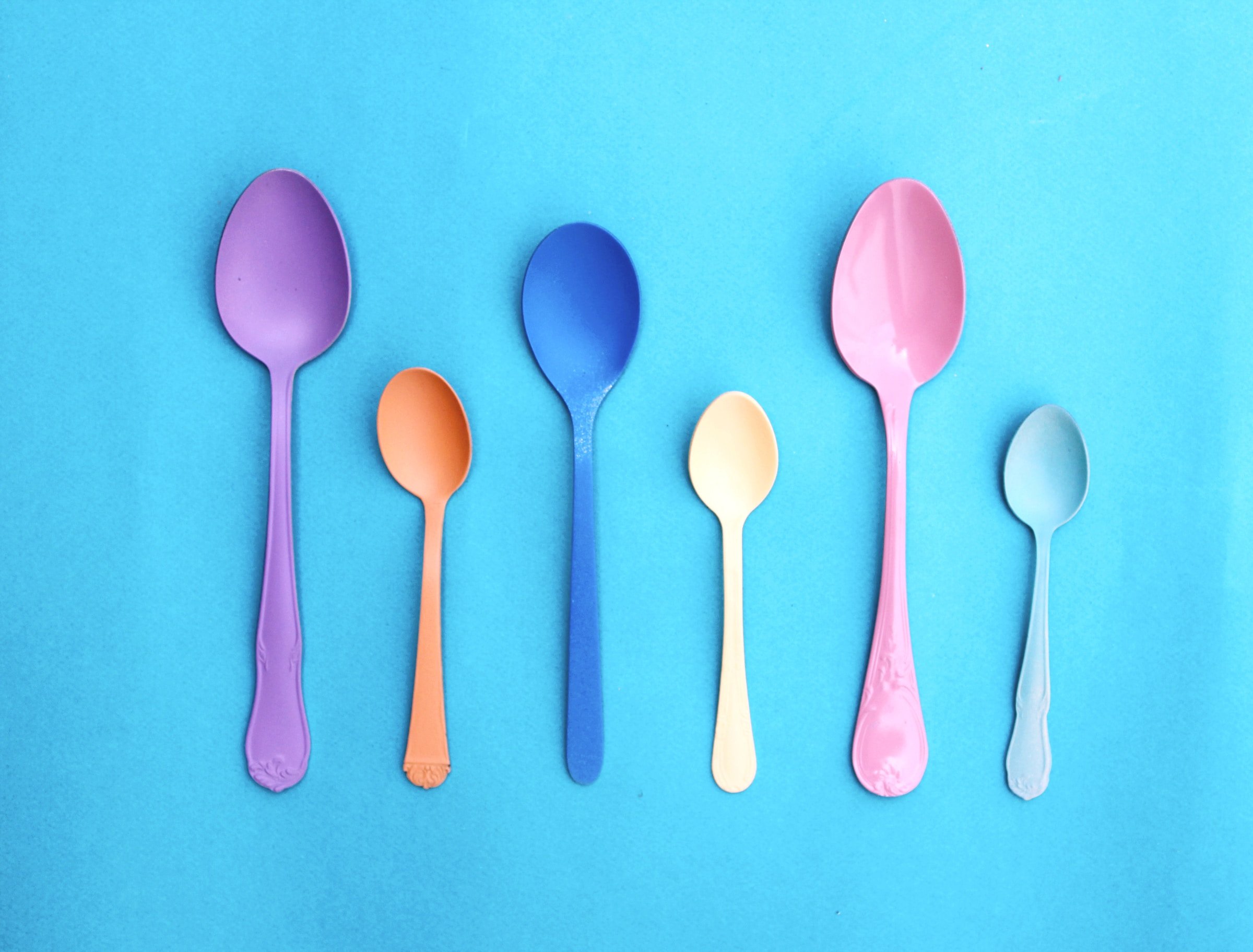
Autistic life hacks
Save energy with spoons
Autistic brains have to work harder to process input, which makes day-to-day activities disproportionately tiring for us. Spoon theory can be a useful tool for eking out limited energy reserves.
The system was invented by Christine Miserandino, who lives with chronic pain from the auto-immune disease lupus. She was in a café with a friend and wanted to explain her struggles, so she gathered up a dozen teaspoons and handed them to the friend. Christine then asked her to describe her daily activities.
Each time the woman mentioned something that would drain Christine’s energy, she took spoons back. Soon there were none left, illustrating how basic actions others take for granted can exhaust those of us with health issues or disabilities.
Imagine having, say, twelve spoons a day. A full-time job might use up eight or ten; a part-time one half-a-dozen. Basic tasks such as showering, food shopping and cooking might take two or three more. On a work day, if you have any left, you might manage to watch a bit of TV or read a few pages. If you’re not working, family responsibilities and housework might account for the lion’s share of your daily allowance, with few left for hobbies or socialising.
Once you know how many spoons each activity tends to cost you, it’s easier to tell if, and when, you can afford to commit to something extra.
If you use more than your daily allocation, the deficit will carry over, reducing the number available until it’s been fully repaid. On rare occasions when you don’t use them all, a surplus can’t be carried over – autistic energy supplies don’t work that way – but you might, at least, end the day feeling a little less frazzled.
Make life less dazzling
Bright light can sap autistic energy and trigger severe headaches. Sunglasses help outside, but they’re not great for wearing under artificial light, especially if you do screenwork or like to relax watching films or TV. For many autistic people, FL-41 lenses are the answer.
They were designed to prevent migraines by filtering out troublesome light frequencies. Unfortunately, most opticians don’t stock them – and if they do, they charge a hefty mark-up.
The good news is FL-41s are available cheaply by mail order from Stockport-based UK Sports Eyewear, who will send out a fully refundable trial pair so you can check the lenses work for you. If, like me, you find they’re a game changer, UK Sports Eyewear will fit plain or prescription versions to your existing frames or add them to a pair from their range.
Exercise to soothe the brain
It might sound counter-intuitive, but if you’re feeling worn out, exercise can help, not just by boosting your mood but by raising energy levels and untangling your brain.
For me, it has to be simple, repetitive and symmetrical, though, which means walking briskly, running, swimming and (indoor or outdoor) rowing all do the trick.
Main picture: Dstudio-bcn. Picture of glasses: Trevor Morgan.
